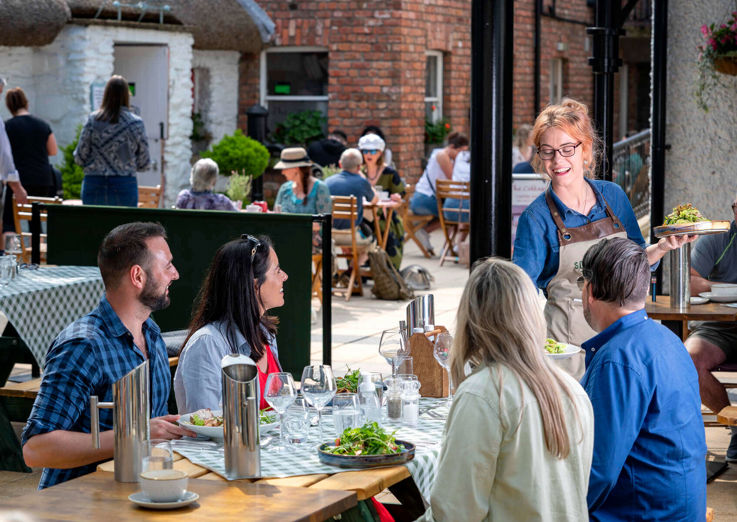9 Key Takeaways for Hospitality Supply Chain Optimisation
Contents
- 9 Key Takeaways for Hospitality Supply Chain Optimisation
- The delivery of food & drink experiences
- Creating a stable revenue generation model for your business
- Why embrace “A Giant Taste”
- Enhancing your menu and developing your signature dish
- Using YouTube for your food and drink business
- Pinterest for your food and drink business
- Developing your brand storytelling to engage with customers
- Improving your food and drink offering
- Creating video content for your food and drink business
- Managing and protecting your online reputation
- How to use Instagram for your tourism business
- How Google Analytics 4 Help Monitor Your Website
- Collaborating for success
- Getting your business listed on Discovernorthernireland.com
- Which Facebook features can your Food & Drink business avail of?
Contents
- 9 Key Takeaways for Hospitality Supply Chain Optimisation
- The delivery of food & drink experiences
- Creating a stable revenue generation model for your business
- Why embrace “A Giant Taste”
- Enhancing your menu and developing your signature dish
- Using YouTube for your food and drink business
- Pinterest for your food and drink business
- Developing your brand storytelling to engage with customers
- Improving your food and drink offering
- Creating video content for your food and drink business
- Managing and protecting your online reputation
- How to use Instagram for your tourism business
- How Google Analytics 4 Help Monitor Your Website
- Collaborating for success
- Getting your business listed on Discovernorthernireland.com
- Which Facebook features can your Food & Drink business avail of?
9 Key Takeaways for Supply Chain Optimisation (Hospitality)

1. Communicate regularly with your suppliers.
- They are all experiencing their own difficulties in sourcing stock as a result of manufacturers having to close periodically and logistical issues.
- Their difficulties will impact on your operations so stay engaged with your sales rep.
- Strong communication will assist you in foreseeing any supply pipeline issues.
2. Have a clear cancellation refund policy.
- When your business re-mobilises, mitigate the possible risk of “No shows” and late cancellations by ensuring this policy is communicated to guests at time of booking.
- Demand advance payment for groups, where possible. Again, pre-warn your customer at time of booking what your policy is when smaller numbers than booked show up.
3. Explore strategic alliances with tour operators/Destination Management Companies
- Reach out to these companies and put your business on their radars. Can you offer them a lunch stop with a set menu and guaranteed turnaround time? Invite them to inspect your premises.
- Engage with your local tour guides as well as larger organisations. They can drive footfall to your business with negligible cost to you.
- Explore how you might align your business with other localised facilities & tours to increase revenue & footfall.
4. Explore the option of using more localised suppliers.
- In these uncertain times it may be prudent to source products and produce that do not have far to travel and their delivery can be guaranteed. With present and future logistics issues we should begin to see a sharper focus on seasonality and practicality of fresh produce.
5. Review your credit terms with suppliers.
- Are your current payment terms best for your business? Might spacing out your monthly payments relieve any financial pressure?
- Always notify your supplier if you need to delay a payment, they would rather hear from you than their credit department if an expected payment hasn’t arrived.
6. Review your inventory management procedures. Probe your EPOS software for any efficiencies.
- Regularly check stock for shelf life and ensure products are used accordingly.
- Constantly monitor stock levels and avoid over ordering.
- Explore the stock management module of your Epos system. This is a very useful tool which will assist greatly in determining GP % and identifying stock shortages. Ask your supplier to demonstrate how more effectively you can utilise it.
7. Ensure that a regular stocktake is in place.
- If you are not producing monthly/quarterly management accounts then your accountant might not be able to tell you how profitable you are until your annual accounts are compiled. By then it could be too late to address any issues.
- Regular stock taking highlights trends and shortages in real time, enabling you to take decisive actions to address problem areas.
- It will also serve as a deterrent to possible theft.
8. Engage positively with trade bodies and your local council.
- Now more than ever with positive news of a vaccine, trade, tourism and council bodies will be planning and actioning marketing campaigns to drive footfall back into the NI hospitality industry in 2021 and beyond.
- Get involved. How can they drive business to you? What can you offer as an incentive?
- Ensure you have marketing literature in their tourist offices & visitor centres.
- What trade shows are relevant to your business? How will you benefit from attending these?
9. Conduct regular staff training.
- Regular staff training is essential for optimum customer service. Ensure key staff are fully aware of your business’s procedures and policies.
- If you had to step aside from your business for a week would standards remain constant? If not, then increased staff training is required.
- Take time to sit down with your staff and discuss anything that might require attention.
- Encourage staff input/suggestions.